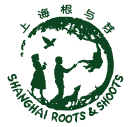Dragon Recycling | Recycling Sharing for Teachers
Nov.21.2019
On November 16th, 2019, Shanghai Roots & Shoots successfully held a waste classification and environmental education conference at the 1851 Space in Hongkou District with the support from the working committee of local sub-district Youth League. A total of 30 teachers from different schools and volunteers of the environmental education program attended the conference.
On July 1st, 2019, Shanghai implemented Regulations of Domestic Waste Management in Shanghai, which regulates waste management locally. The work within the educational system in Shanghai to promote accurate waste classification is also being actively carried out.
On November 16th, Shanghai Roots & Shoots invited several experts and pioneers from the fields of environmental education, chemical industry, and environmental engineering to give a special conference about the status quo after waste classification has been included in the law.
The Crying Ocean (Season I)— the award ceremony for the art competition
With the support of Shanghai Charity Foundation and China Environmental Protection Foundation, Shanghai Roots & Shoots started its Dragon Recycling Program from 2018, raising environmental awareness starting from waste related topics, as well as holding waste classification and recycling campaigns in communities and schools with the help of volunteers coming from colleges and the workplace. 20 schools and 190 students got involved in the program’s special activity, “The Crying Ocean” art competition. At the conference, Shanghai Roots & Shoots gave certificates to winners, and published the list of award-winning works.
How should we classify waste at school?
The first guest speaker at the conference, Yang Yan, comes from Shanghai Environmental Science School, and is now a member of the Youth League in Shanghai Landscaping & City Appearance Administrative Bureau and the director of the Bureau’s recycling promotion mentors in 2019. Ms. Yang talked specifically about the four-category classification standard in Shanghai, and shared her experience in waste classification at Shanghai Wusi Middle School, Jianqing Experimental School, etc. Aspects including the administrative work of waste classification in schools, the supervision and commendation system for teachers and students who are involved, holding discussions and training sessions about waste classification in labor union and administration offices in schools, really inspired the teachers who attended the conference.
It’s microorganisms’ turn after dry and wet wastes are separated!
Dr. Wang Binghan, who comes from the Environmental Engineering major at the School of Ecological and Environmental Sciences, East China Normal University, mainly studies the optimization of the technology in reusing and recycling biological resources in biodegradable solid organic waste, and the technology of new pollutant control during the reuse and recycling process. At the conference, Dr. Wang discussed with the teachers about technologies that utilizes microorganisms to treat organic wastes, and shared corresponding end-of-life treatment of municipal waste, answering questions from an academic perspective about anaerobic fermentation and aerobic fermentation. Besides, Dr. Wang shared a case where a Shanghai recycling industry reuses the kitchen waste, as well as techniques of earthworm composting that can be implemented in schools.
Unravelling the mysteries of plastics: let’s recognize them from 1 to 7.
The different projects of Shanghai Roots & Shoots are greatly supported by many young volunteers, and they have spread messages about environmental protection and public service further based on their different expertise. At the conference, Zhang Zhiqi, who comes from Shanghai Sipo Polytechnic, shared the characteristics and environmental impacts of plastics of No.1~7. Zhang Zhiqi not only actively participates in the environmental education projects at Shanghai Roots & Shoots, but also developed courses on waste classification and the unravelling of the mysteries of plastics, helping more teachers lead students to understand the environmental impacts of plastics.
Let’s get involved in recycling together — both schools and corporations!
Bu Fan from the S-bag Recycling Company shared products that come from recycled goods at the conference, e.g. notebooks and pencils made of recycled paper and bags made of recycled plastics, and introduced separate recycling services supported by S-bag in communities, schools, and corporations. Wherever you are, you can send waste to better places through simple recycling procedures, in order to enhance recycling rate.
Come and recycle with Roots & Shoots in 2020!
In 2020, Shanghai Roots & Shoots plans to bring Dragon Recycling to schools and buildings, inspiring more people to contribute to environmental protection by further promoting waste classification in schools and holding interesting pop-up activities or green fairs. Megan Li, the Operations Director of Shanghai Roots & Shoots, introduced the specific working plans in 2020 of Dragon Recycling. Program coordinator, Zhang Min, shared specific cases where used stuff are turned into new goods.
The recycling campaign of Shanghai Roots & Shoots are still moving forward. In the future, we will unite more professional recycling industries, schools, and communities. We will become the guards of the Earth, turning waste into valuable things, relieving environmental stress for our city.










